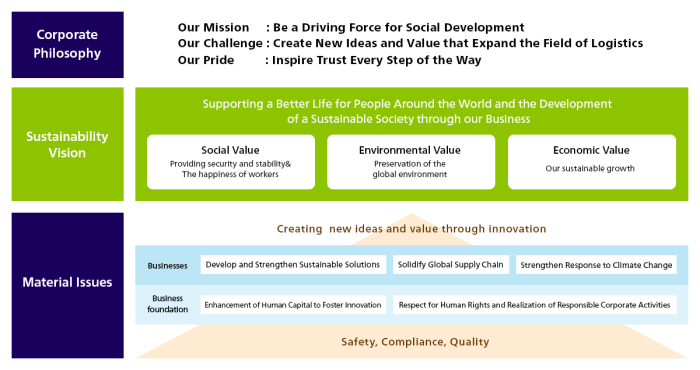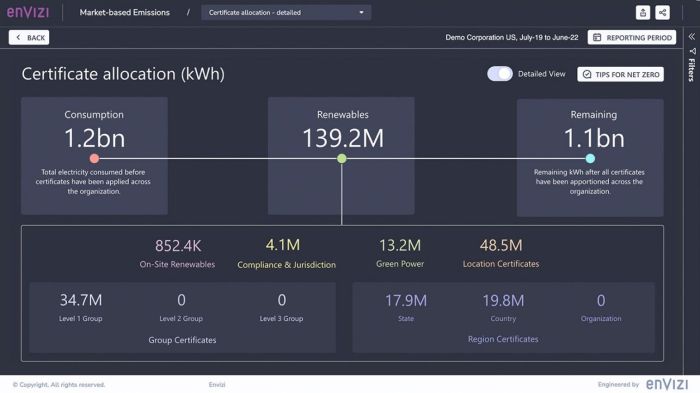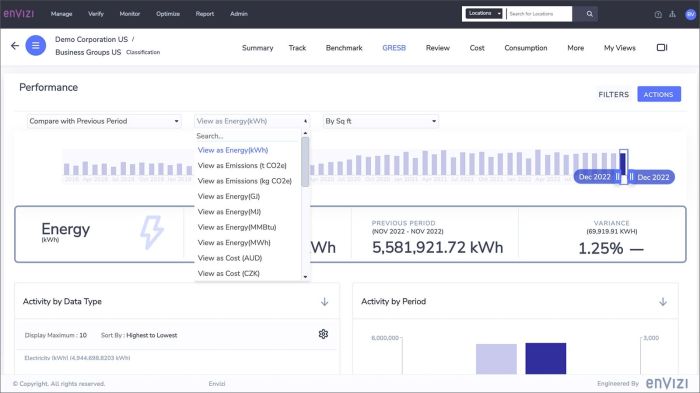Dell ESG A Comprehensive Overview
Dell ESG: Dive into the world of Dell’s commitment to environmental, social, and governance (ESG) principles. We’ll explore their ambitious goals, innovative strategies, and the impact they’re making across their operations and supply chain. This isn’t just about corporate responsibility; it’s about building a sustainable future and demonstrating leadership in the tech industry.
From reducing their carbon footprint through renewable energy and responsible waste management to fostering diversity and inclusion within their workforce and community, Dell is actively shaping a more ethical and sustainable business model. We’ll unpack their key initiatives, performance metrics, and the challenges they face in achieving their ambitious targets. Get ready to learn how a tech giant is tackling some of the world’s biggest issues.
Dell’s ESG Initiatives
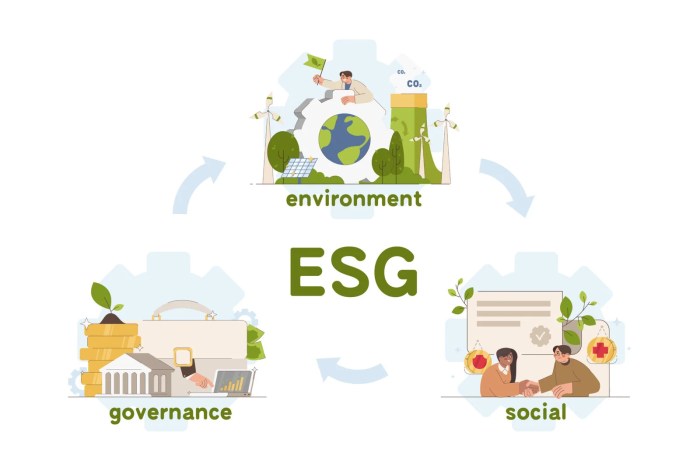
Source: human.in
Dell’s commitment to Environmental, Social, and Governance (ESG) factors is deeply integrated into its business strategy. The company aims to drive positive change across its operations, supply chain, and the broader technology industry. This commitment isn’t just about meeting regulatory requirements; it’s about creating long-term value for stakeholders and contributing to a more sustainable future.
Dell’s ESG Goals and Targets
Dell has set ambitious targets across its ESG pillars. These targets are regularly reviewed and updated to reflect evolving best practices and emerging challenges. Key areas of focus include reducing greenhouse gas emissions, promoting ethical sourcing, and fostering a diverse and inclusive workforce. Specific targets often involve measurable reductions in carbon footprint, increases in renewable energy usage, and improvements in supplier diversity metrics. For instance, Dell aims for a significant reduction in its Scope 1 and 2 emissions by a specific year, a substantial increase in the percentage of renewable energy powering its operations, and a notable increase in the diversity of its workforce at various levels. These targets are publicly available in Dell’s annual ESG reports.
Key Performance Indicators (KPIs) for Measuring ESG Progress
Dell utilizes a range of KPIs to track its progress toward its ESG goals. These KPIs are designed to provide transparency and accountability. They cover environmental impacts like greenhouse gas emissions (Scope 1, 2, and 3), water usage, and waste generation. Social metrics include employee satisfaction, diversity and inclusion data, and human rights performance in the supply chain. Governance KPIs focus on board diversity, ethical business practices, and data security. Specific examples include the percentage of renewable energy used, the reduction in greenhouse gas emissions per revenue, and the diversity representation within management roles. These KPIs are regularly reported to stakeholders and are crucial for demonstrating Dell’s commitment to continuous improvement.
Comparison of Dell’s ESG Performance with Competitors
The following table compares Dell’s ESG performance with its main competitors, HP and Lenovo. Note that data collection and reporting methodologies may vary across companies, making direct comparisons challenging. The information presented here is based on publicly available data from company ESG reports and reputable third-party assessments, and should be considered a snapshot in time. Further research from independent sources is recommended for a more comprehensive analysis.
| Company | Environmental Performance (Example: Carbon Footprint Reduction) | Social Performance (Example: Supplier Diversity) | Governance Performance (Example: Board Diversity) |
|---|---|---|---|
| Dell | [Insert Dell’s specific data from a reliable source, e.g., percentage reduction in carbon emissions] | [Insert Dell’s specific data from a reliable source, e.g., percentage of diverse suppliers] | [Insert Dell’s specific data from a reliable source, e.g., percentage of women on the board] |
| HP | [Insert HP’s specific data from a reliable source, mirroring the metric used for Dell] | [Insert HP’s specific data from a reliable source, mirroring the metric used for Dell] | [Insert HP’s specific data from a reliable source, mirroring the metric used for Dell] |
| Lenovo | [Insert Lenovo’s specific data from a reliable source, mirroring the metric used for Dell] | [Insert Lenovo’s specific data from a reliable source, mirroring the metric used for Dell] | [Insert Lenovo’s specific data from a reliable source, mirroring the metric used for Dell] |
Environmental Sustainability at Dell
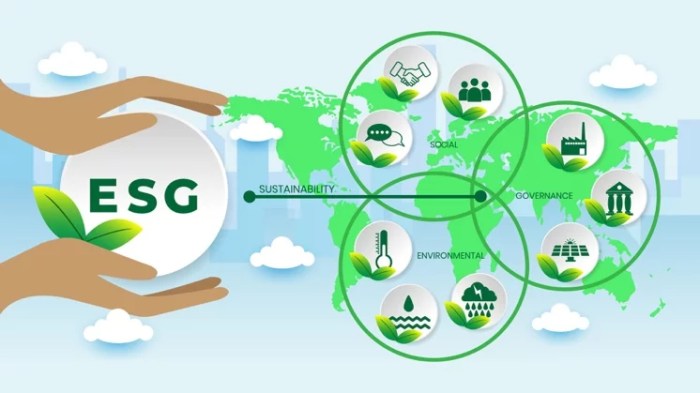
Source: satuplatform.com
Dell’s commitment to environmental sustainability goes beyond simple corporate responsibility; it’s integral to their business strategy. They recognize the interconnectedness of environmental health and business success, actively working to minimize their impact on the planet while driving innovation in sustainable technologies. This commitment manifests in various initiatives across their operations, from supply chain management to product design and end-of-life management.
Dell’s strategies for reducing its carbon footprint across its supply chain involve a multifaceted approach. They collaborate closely with suppliers to improve energy efficiency, reduce waste, and adopt sustainable practices throughout the manufacturing process. This includes setting stringent environmental standards for their suppliers and providing them with the resources and support needed to meet those standards. Transparency is key; Dell actively tracks and reports on the environmental performance of its supply chain, identifying areas for improvement and driving continuous progress.
Dell’s Renewable Energy Usage and Initiatives
Dell is a significant user of renewable energy sources, actively investing in and procuring renewable energy to power its operations. They have committed to powering their operations with 100% renewable energy, a goal they are steadily achieving through a combination of on-site renewable energy generation (such as solar and wind power) and purchasing renewable energy credits. For example, several of Dell’s facilities utilize solar panels to generate clean energy, offsetting their reliance on fossil fuels. Furthermore, Dell supports renewable energy projects globally, contributing to the broader expansion of renewable energy infrastructure.
Dell’s Waste Reduction and Recycling Programs
Dell’s approach to waste reduction and recycling is comprehensive and innovative. They design products with recyclability in mind, using materials that are easily separated and processed at the end of a product’s life. Dell’s recycling program offers customers convenient options for returning their used electronics, ensuring responsible disposal and material recovery. This includes programs that incentivize recycling and provide safe and environmentally sound options for disposing of electronic waste. Dell also actively works to recover valuable materials from discarded electronics, reducing the demand for virgin resources and minimizing landfill waste. Their closed-loop recycling programs aim to recover and reuse valuable materials, reducing reliance on new resources and decreasing environmental impact.
Dell’s Environmental Targets for the Next 5 Years
Dell’s commitment to environmental sustainability is reflected in their ambitious targets for the coming years. These targets demonstrate a clear roadmap for continued improvement and leadership in the tech industry’s sustainability efforts. The following list details some of their key environmental goals:
- Reduce Scope 1 and 2 greenhouse gas emissions by 60% by 2030 (from a 2019 baseline).
- Achieve 100% renewable energy for all global operations.
- Reduce e-waste by 50% through product design and recycling initiatives.
- Increase the use of recycled materials in Dell products to 50%.
- Develop and launch a range of products with a significantly reduced carbon footprint.
These targets represent a significant step towards a more sustainable future and reflect Dell’s dedication to minimizing its environmental impact while innovating for a greener tomorrow. The targets are ambitious but achievable given Dell’s existing progress and ongoing commitment.
Social Responsibility at Dell
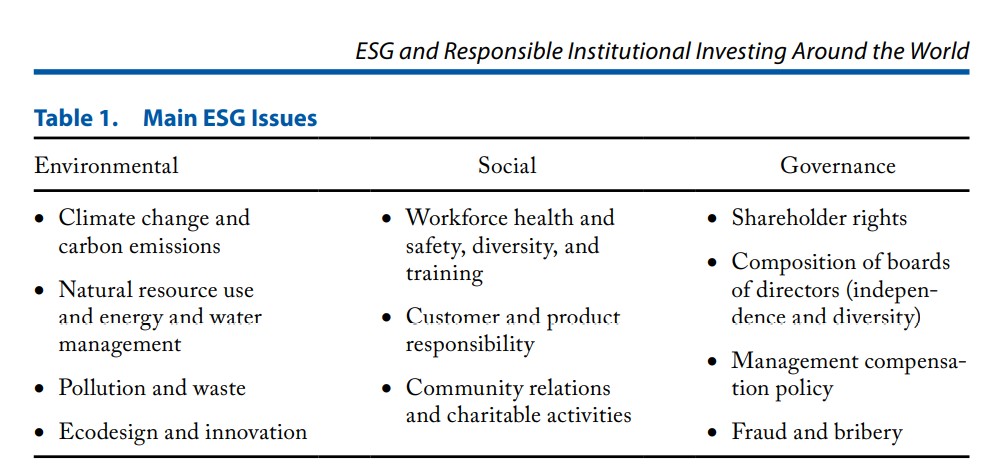
Source: co.id
Dell’s commitment to social responsibility extends beyond environmental sustainability, encompassing a wide range of initiatives focused on fostering a diverse and inclusive workplace, supporting employee well-being, engaging with communities, and promoting ethical business practices. These efforts are integral to Dell’s overall business strategy and reflect a deep understanding of the interconnectedness between social progress and business success.
Dell’s Diversity, Equity, and Inclusion Programs
Dell actively works to cultivate a diverse and inclusive workforce, believing that a variety of perspectives enriches innovation and strengthens the company. This commitment translates into specific programs aimed at attracting, retaining, and promoting individuals from underrepresented groups. For example, Dell has established employee resource groups (ERGs) that provide support and networking opportunities for employees from diverse backgrounds, including women, people of color, LGBTQ+ individuals, and people with disabilities. These groups play a crucial role in advocating for inclusive policies and practices within the company. Dell also participates in various diversity recruitment initiatives, partnering with organizations that focus on placing talented individuals from underrepresented communities into technology roles. Furthermore, Dell implements diversity and inclusion training programs to educate employees on unconscious bias and promote a culture of respect and understanding.
Supporting Employee Well-being and Development
Investing in employee well-being and development is a cornerstone of Dell’s social responsibility strategy. The company offers a comprehensive range of programs designed to support employees’ physical, mental, and financial health. These include competitive benefits packages, flexible work arrangements, wellness programs (such as on-site fitness centers or subsidized gym memberships), and robust employee assistance programs providing access to mental health resources and counseling services. Dell also emphasizes professional development opportunities, providing employees with access to training programs, mentorship initiatives, and opportunities for career advancement. This commitment to employee growth fosters a loyal and engaged workforce, contributing to a positive and productive work environment.
Dell’s Community Engagement and Philanthropic Activities
Dell actively engages with communities worldwide through various philanthropic initiatives and volunteer programs. The company supports educational programs focused on STEM (Science, Technology, Engineering, and Mathematics) education, providing resources and opportunities for students to develop crucial skills for the future workforce. Dell also partners with non-profit organizations to address social issues, such as poverty and access to technology, in underserved communities. Examples of Dell’s community engagement include providing technology grants to schools and community centers, supporting disaster relief efforts, and sponsoring volunteer events where employees contribute their time and skills to local causes. These efforts demonstrate Dell’s commitment to giving back to the communities where its employees live and work.
Promoting Ethical and Responsible Business Practices
Dell’s commitment to ethical and responsible business practices extends throughout its operations, from its supply chain to its interactions with customers. The company adheres to a strict code of conduct that guides its employees’ actions and decision-making processes. Dell actively works to ensure ethical sourcing and responsible manufacturing practices, striving to minimize its environmental impact and promote fair labor practices throughout its supply chain. Transparency and accountability are key elements of Dell’s ethical framework, with regular audits and reporting processes in place to monitor compliance and identify areas for improvement. The company also prioritizes data privacy and security, implementing robust measures to protect customer information and maintain trust.
Governance and Transparency at Dell: Dell Esg
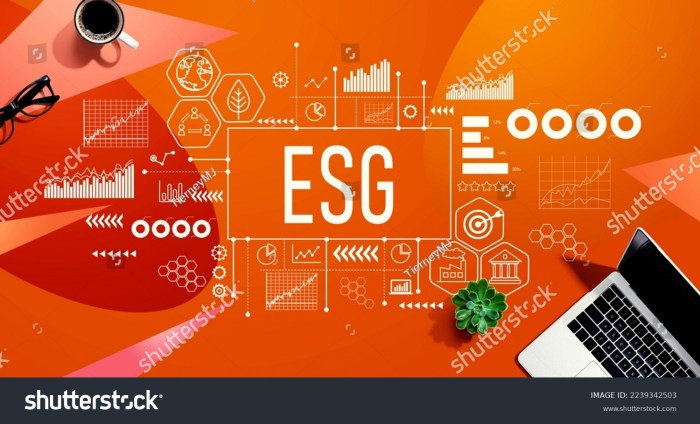
Source: shutterstock.com
Dell’s commitment to robust corporate governance and transparent ESG reporting is a cornerstone of its sustainability strategy. This ensures accountability to stakeholders and fosters trust in the company’s operations and long-term vision. A well-defined governance structure and open communication are crucial for effective ESG management and achieving sustainable growth.
Dell’s corporate governance framework is built upon a foundation of established best practices. The company operates under a board of directors responsible for overseeing strategic direction, risk management, and ethical conduct. This board comprises independent directors, providing objective oversight and ensuring alignment with shareholder interests. Dell’s commitment to transparency extends to its ESG reporting, providing detailed information on its environmental, social, and governance performance. This commitment aims to provide a clear picture of Dell’s impact and progress towards its sustainability goals.
Dell’s Corporate Governance Structure
Dell’s governance structure adheres to global best practices, prioritizing shareholder value while balancing the interests of all stakeholders. The board of directors, comprised of both independent and executive members, oversees the company’s strategic direction, financial performance, and risk management. Committees such as the audit, compensation, and nominating and governance committees provide specialized oversight in their respective areas. Regular board meetings, coupled with robust internal controls and compliance programs, ensure adherence to legal and ethical standards. Dell also utilizes a comprehensive risk management framework to identify, assess, and mitigate potential risks impacting its ESG performance.
Dell’s Commitment to Transparency and Accountability in ESG Reporting
Dell publishes an annual ESG report detailing its performance across various environmental, social, and governance dimensions. This report, prepared according to globally recognized standards, provides transparent and comprehensive data on Dell’s progress toward its sustainability goals. The report covers key metrics, targets, and initiatives related to environmental sustainability, social responsibility, and corporate governance. Dell also engages with external assurance providers to verify the accuracy and reliability of its reported data, further enhancing transparency and accountability. This commitment to transparency helps build trust with investors, customers, and other stakeholders.
Dell’s Stakeholder Engagement on ESG Matters
Dell actively engages with a wide range of stakeholders, including investors, customers, suppliers, employees, and communities, to address ESG matters. This engagement takes various forms, including direct dialogue, surveys, and participation in industry initiatives. For example, Dell collaborates with suppliers to improve their environmental and social performance throughout its supply chain. The company also actively participates in industry collaborations and initiatives focused on promoting sustainable practices and addressing shared challenges. Through these interactions, Dell gathers valuable feedback, identifies emerging issues, and shapes its ESG strategy to reflect the evolving needs and expectations of its stakeholders.
Dell Board Composition and Diversity
Dell’s board of directors reflects a commitment to diversity and inclusion. The following table summarizes the board’s composition, incorporating diversity metrics. Note that specific numbers may vary slightly depending on the most recent update. This information is typically available in Dell’s corporate governance documents and annual reports.
| Director Name | Role | Gender | Ethnicity/Race (Self-Identified) |
|---|---|---|---|
| [Director 1 Name] | [Director 1 Role] | [Gender] | [Ethnicity/Race] |
| [Director 2 Name] | [Director 2 Role] | [Gender] | [Ethnicity/Race] |
| [Director 3 Name] | [Director 3 Role] | [Gender] | [Ethnicity/Race] |
| [Director 4 Name] | [Director 4 Role] | [Gender] | [Ethnicity/Race] |
Materiality Assessment of Dell’s ESG Performance

Source: dreamstime.com
Dell’s commitment to Environmental, Social, and Governance (ESG) factors isn’t just a public relations exercise; it’s integral to its long-term business strategy. Understanding which ESG issues are most significant – those that materially impact the company’s value and operations – is crucial. This involves a rigorous materiality assessment process, combining stakeholder engagement with internal analysis to identify and prioritize key areas.
Dell’s materiality assessment considers a wide range of factors, including the perspectives of investors, customers, employees, suppliers, and communities. This multifaceted approach ensures that the company addresses issues that are truly relevant and impactful, rather than simply focusing on those that are easily measurable or trendy. The process involves analyzing potential impacts on Dell’s financial performance, reputation, and operational efficiency.
Key ESG Issues Identified by Dell’s Materiality Assessment
Dell’s materiality assessment consistently highlights several key ESG issues. These include climate change (specifically greenhouse gas emissions from operations and supply chains), ethical sourcing and responsible supply chain management, data security and privacy, and workforce diversity and inclusion. These issues have been identified as having the most significant potential to affect Dell’s business, financial performance, and reputation. The assessment process is iterative and regularly updated to reflect evolving stakeholder expectations and business priorities.
Prioritization and Addressing Material ESG Issues
Dell prioritizes its material ESG issues through a structured approach involving setting ambitious targets, implementing comprehensive programs, and regularly reporting on progress. For example, Dell has committed to ambitious greenhouse gas emission reduction targets, investing in renewable energy sources, and optimizing its product lifecycle to minimize environmental impact. Regarding ethical sourcing, Dell employs robust supplier codes of conduct and conducts regular audits to ensure compliance with its sustainability standards. Data security and privacy are addressed through rigorous security protocols and ongoing investments in cybersecurity infrastructure. Furthermore, Dell actively promotes diversity and inclusion within its workforce through targeted recruitment programs, employee resource groups, and diversity training initiatives.
Impact of ESG Performance on Dell’s Business Strategy and Long-Term Value Creation
Dell’s strong ESG performance directly contributes to its long-term value creation. A commitment to sustainability enhances its brand reputation, attracts and retains top talent, strengthens relationships with customers and investors who prioritize ESG factors, and fosters innovation in sustainable product design and manufacturing. For instance, Dell’s commitment to reducing its carbon footprint leads to cost savings through energy efficiency and improved resource management. Similarly, ethical sourcing practices help to mitigate supply chain risks and build trust with stakeholders. By proactively addressing material ESG issues, Dell is positioning itself for long-term success in a world increasingly focused on sustainability and responsible business practices.
Visual Representation of the Relationship Between Dell’s Key ESG Issues and its Business Strategy
Imagine a central circle representing Dell’s overall business strategy, focused on innovation, customer satisfaction, and long-term growth. Four smaller circles, each representing a key ESG issue (climate change, ethical sourcing, data security, and workforce diversity), are interconnected with the central circle. Lines connecting the smaller circles to the central circle demonstrate the direct influence of each ESG issue on Dell’s overall strategy. For instance, a line connecting the “climate change” circle to the central circle could be labeled “Reduced operational costs,” while a line connecting “ethical sourcing” to the center could be labeled “Enhanced brand reputation and supply chain resilience.” The visual clearly shows that strong ESG performance isn’t separate from Dell’s business strategy; it’s integral to its success. The overlapping areas between the smaller circles further illustrate the interconnectedness of these issues – for example, ethical sourcing contributes to mitigating climate change risks within the supply chain.
Challenges and Opportunities in Dell’s ESG Journey
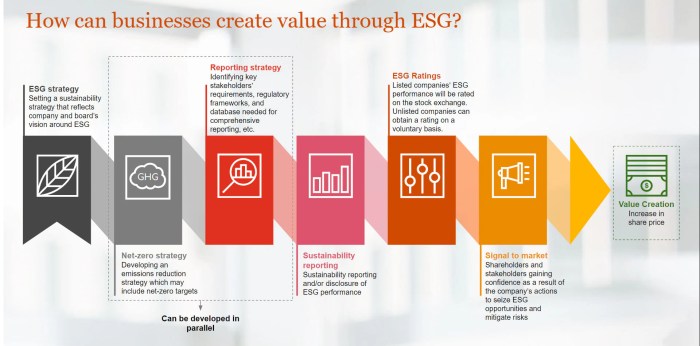
Source: pwc.com
Dell’s commitment to Environmental, Social, and Governance (ESG) principles represents a significant undertaking, fraught with both substantial challenges and exciting opportunities. Successfully navigating this path requires a proactive and adaptable strategy, acknowledging the complexities inherent in balancing profitability with ethical and sustainable practices. This section will delve into the key hurdles Dell faces and the potential avenues for improvement and leadership in the ESG space.
Key Challenges Facing Dell’s ESG Goals
Dell, like many large technology companies, faces significant challenges in meeting its ambitious ESG goals. These challenges are multifaceted, encompassing operational complexities, supply chain vulnerabilities, and the ever-evolving landscape of ESG expectations. For example, achieving ambitious carbon reduction targets requires substantial investment in renewable energy sources and operational efficiency improvements across its global operations. Furthermore, ensuring ethical and sustainable sourcing throughout its complex supply chain presents a continuous challenge, requiring robust due diligence and collaborative partnerships. Finally, maintaining transparency and accountability in a rapidly evolving regulatory environment necessitates a highly adaptable and robust governance structure.
Opportunities for Enhanced ESG Performance and Leadership
Despite the challenges, Dell possesses significant opportunities to strengthen its ESG performance and establish itself as a leader in the industry. The circular economy presents a major avenue for innovation and competitive advantage. By investing in product design for recyclability, extending product lifecycles through refurbishment and repair programs, and developing closed-loop material recovery systems, Dell can reduce its environmental footprint while creating new revenue streams. Furthermore, Dell can leverage its technological expertise to develop and deploy innovative solutions that address broader societal challenges, such as improving digital literacy and access to technology in underserved communities. Strategic partnerships with NGOs and other stakeholders can enhance Dell’s impact and credibility in its ESG initiatives.
Comparison of Dell’s ESG Approach with Industry Best Practices
Dell’s ESG approach incorporates many industry best practices, such as setting science-based targets for emissions reduction and publishing comprehensive ESG reports. However, compared to some leading technology companies, Dell could strengthen its focus on specific areas. For example, while Dell has made strides in reducing its carbon footprint, some competitors have implemented more aggressive renewable energy strategies. Similarly, while Dell actively engages in social responsibility initiatives, some competitors have established more comprehensive programs addressing diversity, equity, and inclusion within their workforce and supply chains. A comparative analysis against industry benchmarks, such as those established by the Global Reporting Initiative (GRI) or the Sustainability Accounting Standards Board (SASB), can identify areas for improvement and inform future strategic planning.
Recommendations for Improving Dell’s ESG Performance, Dellegg
To further enhance its ESG performance, Dell should consider the following recommendations:
- Invest in advanced recycling technologies: Explore and implement cutting-edge technologies to increase the recyclability rate of its products and recover valuable materials from e-waste.
- Strengthen supply chain transparency and traceability: Implement robust systems to track materials throughout the supply chain, ensuring ethical sourcing and minimizing environmental impacts.
- Expand renewable energy procurement: Commit to sourcing a higher percentage of its energy needs from renewable sources, potentially exceeding industry averages.
- Enhance diversity, equity, and inclusion (DE&I) initiatives: Develop more ambitious targets and programs to promote diversity at all levels of the organization and within its supply chain.
- Develop innovative solutions for societal challenges: Leverage Dell’s technological expertise to create solutions that address critical social issues, such as digital inclusion and climate change adaptation.
- Strengthen stakeholder engagement: Establish more robust mechanisms for engaging with stakeholders, including customers, employees, investors, and NGOs, to ensure transparency and accountability.
Outcome Summary
![]()
Source: vectorstock.com
Dell’s journey towards ESG excellence showcases a commitment that extends beyond mere compliance. Their multifaceted approach, encompassing environmental sustainability, social responsibility, and transparent governance, sets a benchmark for other corporations. While challenges remain, Dell’s proactive strategies and ongoing engagement with stakeholders signal a strong dedication to creating long-term value, not just for their shareholders, but for the planet and society as a whole. Their efforts highlight the growing importance of ESG in the business world and the positive impact a company can have when it prioritizes sustainability and ethical practices.

